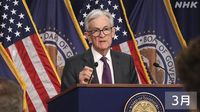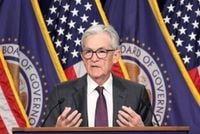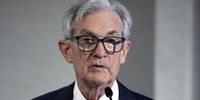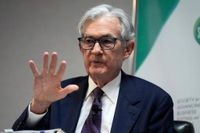On April 4, 2025, Federal Reserve Chairman Jerome Powell addressed a gathering of business journalists in Arlington, Virginia, where he shared his insights on the current economic landscape shaped by recent policy changes from the Trump administration. The focus of his speech was on the unexpected rise in tariffs announced by President Trump, which Powell indicated could lead to significant economic repercussions.
Powell stated that the tariffs were "larger than expected," and their impact on inflation and growth was also anticipated to be greater than initially thought. This revelation has heightened concerns about the U.S. economy's trajectory, as many analysts are now wary of a potential slowdown in growth accompanied by rising inflation. He noted, "We are facing a very uncertain outlook with the risk of both rising unemployment and rising inflation, which could hinder the achievement of the FRB's dual mandate of price stability and maximum employment."
In his remarks, Powell emphasized the Federal Reserve's commitment to monitoring the economic fallout from the tariffs. He acknowledged that while the FRB's outlook does not currently include a recession, private sector forecasts are beginning to factor in the possibility of one, especially with the new tariffs in play. He remarked, "Uncertainty remains high, but it is becoming clear that the tariff hikes are becoming significantly larger than expected."
As markets reacted to the news, concerns were palpable. Investors are particularly anxious about how these tariffs might affect consumer prices and overall economic growth. Powell assured the audience that the Federal Reserve is focused on stabilizing long-term inflation expectations and ensuring that temporary price increases do not evolve into a lasting inflation problem.
Powell's speech came just before the release of the U.S. employment statistics for March 2025, which were scheduled for April 4 at 9:30 PM Japan time. Analysts predict that the unemployment rate will hold steady at 4.1%, while non-farm payrolls are expected to rise by 140,000, a slowdown compared to the previous month’s increase of 151,000. These figures will be critical in assessing the health of the labor market amid rising inflation concerns.
In a related development, President Trump took to social media on the same day to express his views on the Federal Reserve's monetary policy. He posted, "It's a great time for FRB = Federal Reserve Board Chairman Powell to lower interest rates. He's always late to respond, but now he can change that image. Energy prices are down, and egg prices are falling. Chairman Powell, lower interest rates. Stop the political maneuvering." This call for action reflects the ongoing tension between the White House and the Federal Reserve regarding interest rate decisions.
During his address, Powell reiterated the importance of the FRB's role in responding to economic impacts rather than commenting directly on the Trump administration's policies. He stated, "The impact on the economy will also likely be significant. That impact includes rising inflation rates and a slowdown in economic growth, but the extent or duration of the impact remains opaque." This statement underscores the cautious approach the Fed is taking as it navigates through these uncertain times.
Powell also highlighted the difficulties businesses face in making decisions under the current climate of uncertainty. He noted that many companies are adopting a wait-and-see approach, as they anticipate clearer signals regarding the economic environment and government policies. "People are waiting for things to become clearer, and being cautious at this time seems like the right thing to do," he said.
Looking ahead, Powell indicated that the Federal Reserve is in a position to assess the situation more clearly before considering any adjustments to its policy stance. He emphasized that it is too early to determine the appropriate path for monetary policy, suggesting that the Fed will continue to monitor both hard and soft economic data closely.
In conclusion, Powell's remarks reflect the growing unease surrounding the U.S. economy in light of increased tariffs and the potential for rising inflation. As the Federal Reserve prepares to navigate these challenges, the upcoming employment report will serve as a critical indicator of the economy's health, influencing future monetary policy decisions.








